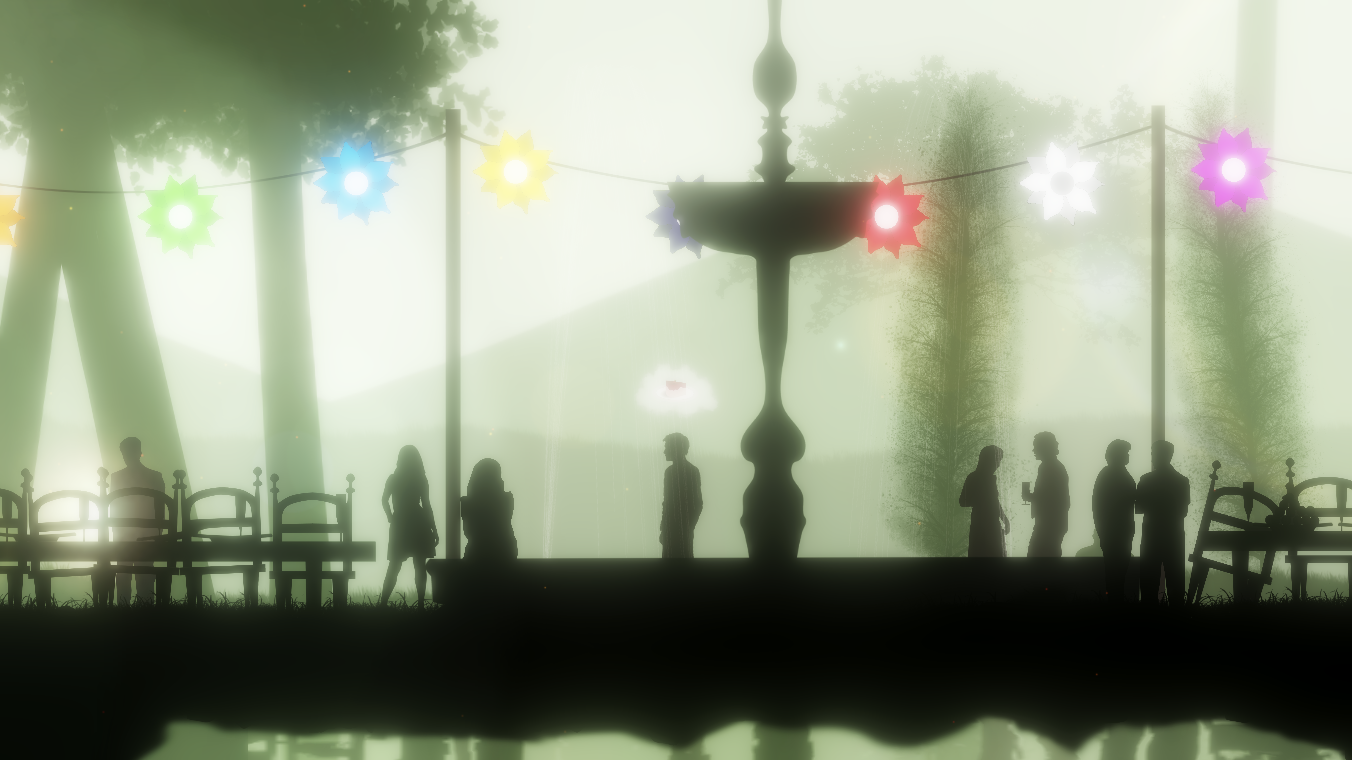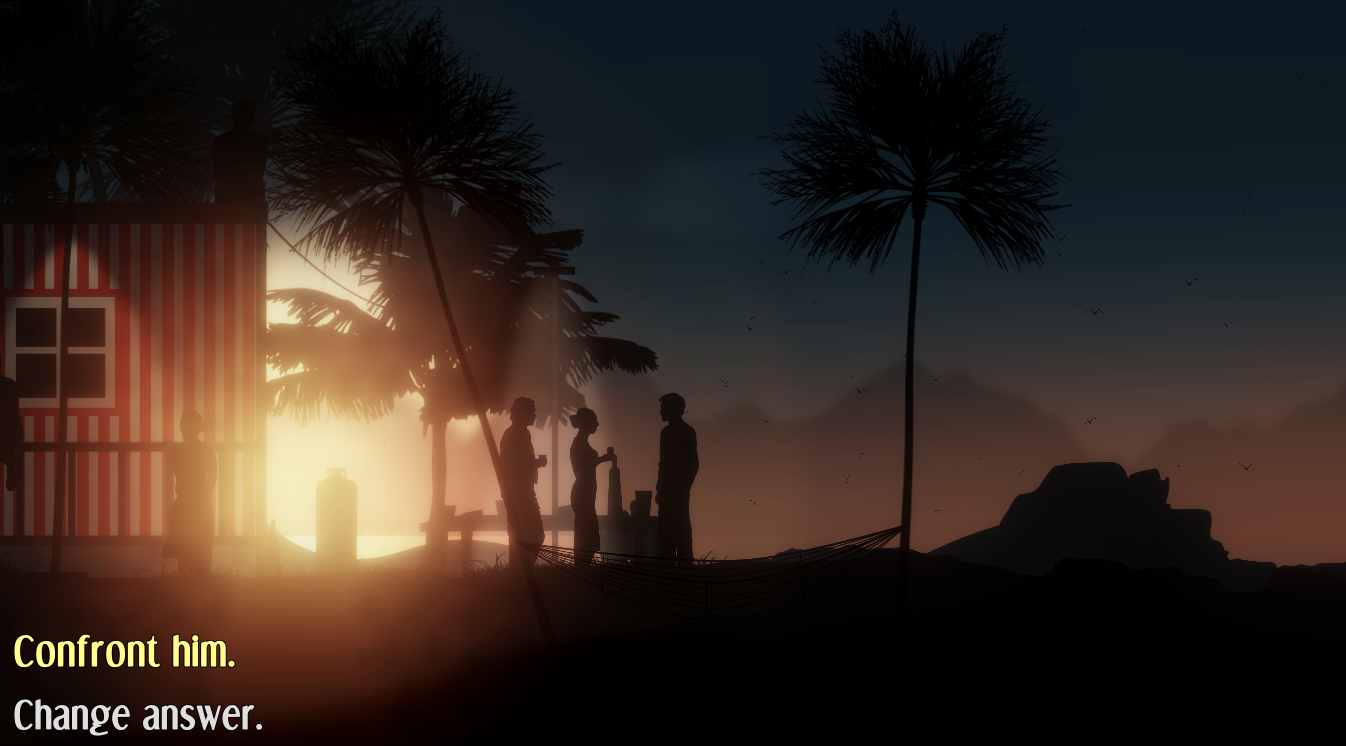There are some incredible indie games that deal with mental health issues nowadays that I’m always eager to try out, so when Into a Dream came my way I was thrilled. Our mental health is so important, and if there are some amazing games that help us to understand it, even better right? Into a Dream, from Filipe F. Thomaz, is a profound and pretty little game that truly seeks to understand how intricate and complex mental health is.
Into a Dream is a visual novel-esque side scroller with some lite platforming elements and dialogue selection. It follows the character of John Stevens, whose job it is, Inception-style, to traverse the dreams of a man diagnosed with depression, Luke Williams. Your job is to understand exactly what happened to Luke, a successful man with a loving family, over the course of several years. The timeline seems jump around a bit, and you might not always understand exactly what’s going on, but as the story progresses you’ll begin to piece things together more and more and see the true tragedy of Luke’s story.

The emotional side of Into a Dream is undeniably its strongest point as might be expected in a game with such a serious subject matter. It is at times a heart-breaking story that really drives home the importance of speaking about our mental health. I came to feel for the characters and their circumstances and wanted the absolute best for them.
The characters I think are another strong point of the game. What’s fascinating is that all of the characters appear as nothing more than silhouetted forms for the full duration of the game, but with some sincere voice acting and character development arcs you’ll recognise them instantly and know when something is up. That takes true talent.
I really liked the character of Luke, particularly, no matter how sad his story is, and for me his voice acting was a true highlight. Luke sounds from the beginning like a man who is facing something quite terrible in his life. The voice acting, for me, seemed more realistic and genuine than it many other games I’ve played. This was quite refreshing for me.

Artistically the game is also beautiful. Each environment, from the snowy woods to the beach at sunset, is so, so gorgeous, with some lighting that’ll take your breath away. Colours and lighting are used to wonderful effect to alter the mood and atmosphere of each scene, and you’ll immediately know when something is afoot. The darker scenes are incredibly haunting. The music, too, is a highlight, and perfectly complements the mood of each scene.
Though a beautiful game, it is not perfect however. There are some places where the game falls a little short. On the more nit-picking side, there are spelling errors in the dialogue that might have been quickly checked. This is a very minor complaint though, as I’ve enjoyed many games with worse errors than Into a Dream before. I wouldn’t be the absolute sap I am if a couple of spelling errors could stop me from enjoying what is a really heartfelt story.
The narrative style and subject matter mean that the story is super slow-paced near the beginning of the story: it didn’t really grip me quite as it should have. With lengthy dialogues with characters I wasn’t quite invested in yet, this is unsurprising to me. It’s the latter half of the game where this story really gets gripping, where you’ll want the answers and you’ll genuinely be worrying about Luke’s situation. Of course, I understand why the game is structured this way, and I have no complaints about the pacing of the second half of the game, but I think it’s in need of a slightly more gripping first half with some better pacing.

I also feel I would’ve liked this game more had it been streamlined into an exclusively visual novel type experience. The platforming elements are a little annoying, with buttons sometimes seeming a little unresponsive, and I feel they didn’t really contribute anything to a game that already excels in other areas. With a story so profound, I didn’t feel like there was any real need for platforming, especially when the mechanics of it are a bit frustrating at times. This, really, is a compliment: the story is so well done that the game does not need these elements at all.
Lastly, on the more frustrating side: bugs. I don’t exactly know what was happening with my game, but I struggled to get it to play the last scene of the game: my screen would fade to black and then the game would not move on, despite there being a scene after this. This wasn’t a game crash; the menu would still open and I could close the game, but for some reason the next scene would not play.
All in all, Into a Dream is a deep, emotional game with an important message and some gorgeous artwork that does however struggle in some areas. Having said this, I’m still glad I played it and I respect it hugely in spite of its flaws. It’s available now on PC and Mac.

